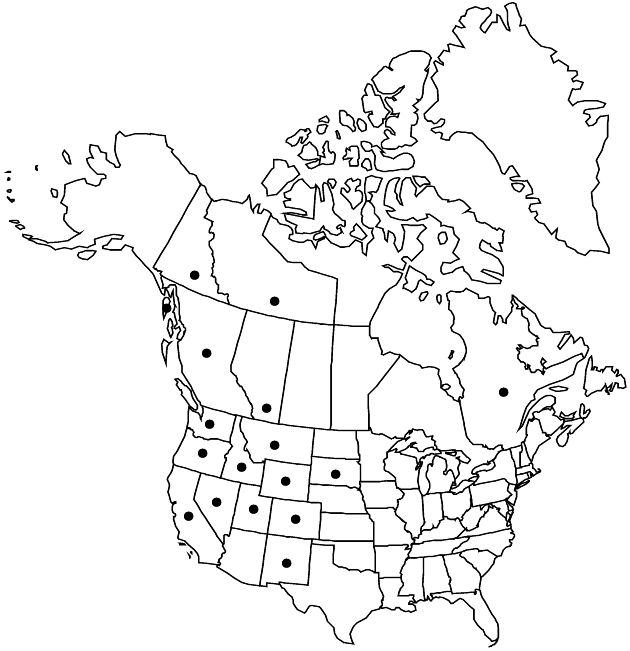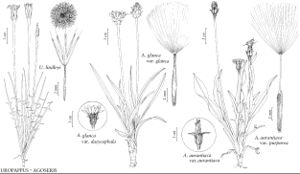Agoseris aurantiaca var. aurantiaca
Leaf-blades: margins entire, dentate, or laciniately pinnatifid, faces glabrous or sparsely villous, mostly not glaucous. Peduncles: lengths mostly shorter than leaves at flowering, glabrate, or apically villous. Phyllaries green or medially rosy purple, often purple-black spotted or blotched, with or without purple-black midstripes, narrowly to broadly lanceolate, mostly subequal at flowering, or outer longer than inner, herbaceous, faces usually villous, sometimes glabrous, margins ciliate, especially proximally; outer adaxially ± villous. Corollas usually orange, sometimes pinkish or yellow, rarely white, mostly subequal to inner phyllaries. Cypselae: bodies ± abruptly contracted to beaks, ribs often more strongly ridged distally than proximally, mostly hirsutellous. 2n = 18.
Phenology: Flowering Jun–Sep.
Habitat: Wet meadows, bogs, muskegs, stream and lake margins, montane to alpine habitats, or ± drier sites of open forests and mountain slopes, various soils, often disturbed areas, roadsides
Elevation: 200–3600 m
Distribution

Alta., B.C., N.W.T., Que., Yukon, Alaska, Calif., Colo., Idaho, Mont., Nev., N.Mex., Oreg., S.Dak., Utah, Wash., Wyo.
Discussion
Variety aurantiaca is widespread in the western cordillera and is disjunct in Quebec. Two morphologic trends occur within this variety. Plants of wetter habitats represent the typical var. aurantiaca; those of drier habitats resemble what past authors have called Agoseris gracilens (including A. gracilens var. greenei). There is a weak geographic trend to this variation, with the aurantiaca phase occurring mostly along the Rocky Mountains axis and the gracilens phase mostly along the Cascade Mountains-Sierra Nevada axis. In their extremes they appear distinct, but their intergradation is so complete that separation becomes arbitrary. Putative hybrids between var. aurantiaca and A. glauca, A. grandiflora, A. monticola, and A. parviflora have been collected.
Corolla color in var. aurantiaca is variable but most commonly orange. Pink-flowered forms occur sporadically. They have been recognized as Agoseris lackschewitzii. Recognition of pink forms is unmerited; if it were, the older name A. carnea would have priority.
Selected References
None.
Lower Taxa
"fine" is not a number."elongating" is not a number.
